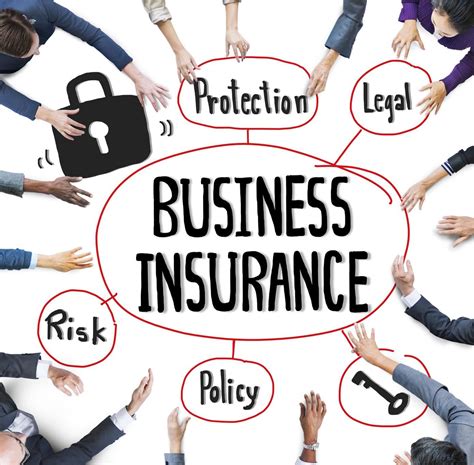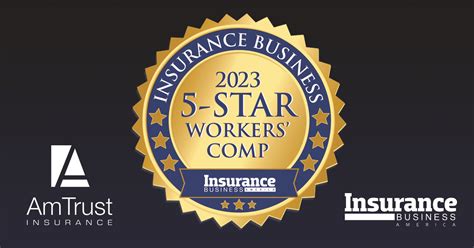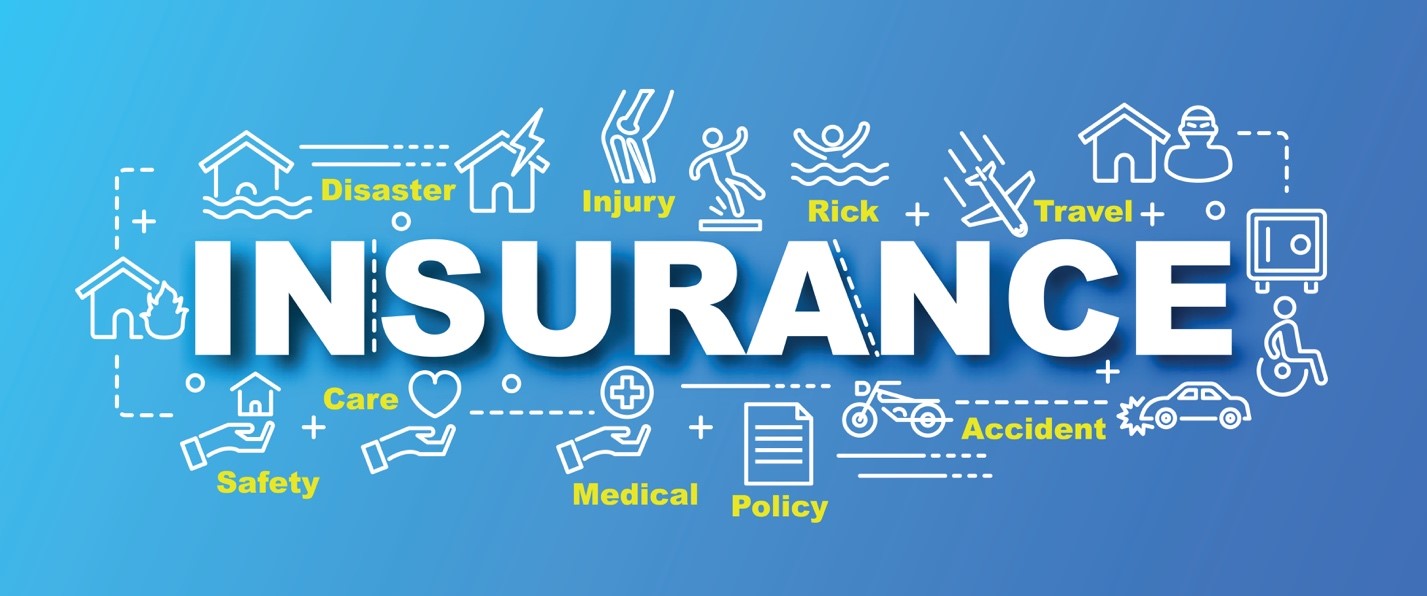Business Insurance For Small Business Owners

Navigating the world of business insurance can be a complex and daunting task, especially for small business owners. With numerous options and policies available, it's essential to understand the coverage your business needs to thrive and protect itself against potential risks. This comprehensive guide will delve into the world of business insurance, offering expert insights and practical advice to help small business owners make informed decisions and secure their ventures.
Understanding the Importance of Business Insurance

Business insurance is an essential tool that provides financial protection to businesses of all sizes. It acts as a safety net, shielding your venture from the unforeseen challenges that may arise during the course of operation. From natural disasters to legal liabilities, having the right insurance coverage can mean the difference between a minor setback and a catastrophic loss.
For small businesses, which often operate with limited resources and a tight budget, the impact of an unexpected event can be devastating. Business insurance ensures that you have the financial backing to recover and rebuild, safeguarding your investment and the future of your company.
Types of Business Insurance

The insurance landscape for businesses is diverse, offering a range of policies tailored to different industries and risks. Here’s a breakdown of some of the most common types of business insurance and their key features:
General Liability Insurance
General liability insurance is a fundamental coverage for most businesses. It protects against third-party claims arising from accidents, injuries, or property damage that occur on your business premises or as a result of your operations. This type of insurance covers medical expenses, legal fees, and any settlements or judgments against your business.
Product Liability Insurance
If your business involves the manufacturing, distribution, or sale of products, product liability insurance is crucial. It safeguards your business against claims arising from defective products, covering legal costs and any damages awarded to injured parties.
Professional Liability Insurance (Errors and Omissions)
Also known as errors and omissions (E&O) insurance, professional liability insurance is designed for businesses that provide professional services. It protects against claims of negligence, errors, or omissions in the services provided, offering coverage for legal defense and any resulting damages.
Workers’ Compensation Insurance
Workers’ compensation insurance is mandated by law in most states. It provides coverage for employees who suffer work-related injuries or illnesses, covering medical expenses, lost wages, and rehabilitation costs. This insurance protects both your employees and your business from potential lawsuits and ensures compliance with legal requirements.
Commercial Property Insurance
Commercial property insurance protects the physical assets of your business, including buildings, equipment, inventory, and supplies. It covers damages caused by events such as fire, storms, vandalism, and theft, helping your business recover and replace lost or damaged property.
Business Interruption Insurance
Business interruption insurance is a crucial coverage that steps in when your business operations are disrupted due to covered events like a fire or natural disaster. It provides financial support to cover lost income and ongoing expenses, helping your business stay afloat during the recovery period.
Cyber Liability Insurance
In today’s digital age, cyber liability insurance has become increasingly important. It protects your business from the financial consequences of cyber attacks, data breaches, and other online risks. This insurance covers legal fees, data recovery costs, and any damages awarded to affected parties.
| Insurance Type | Key Coverage |
|---|---|
| General Liability | Third-party claims, accidents, property damage |
| Product Liability | Defective product claims |
| Professional Liability (E&O) | Negligence, errors in professional services |
| Workers' Compensation | Work-related injuries, legal compliance |
| Commercial Property | Damage to physical assets |
| Business Interruption | Lost income due to disruptions |
| Cyber Liability | Cyber attacks, data breaches |

Assessing Your Business’s Insurance Needs
Every business is unique, and so are its insurance needs. Here are some key factors to consider when evaluating your business’s insurance requirements:
Industry and Business Operations
The industry you operate in and the nature of your business activities play a significant role in determining your insurance needs. For instance, a construction company faces different risks compared to a software development firm.
Location and Environment
The geographical location of your business and the environmental factors it’s exposed to can impact your insurance requirements. For example, businesses in hurricane-prone areas may require additional coverage for wind damage.
Number of Employees
The size of your workforce can influence the type and extent of insurance coverage you need. Larger businesses with more employees may require more comprehensive workers’ compensation and professional liability insurance.
Client and Customer Base
The nature of your client or customer interactions can also affect your insurance needs. If you work closely with clients or have sensitive data, you may need additional liability and cyber insurance coverage.
Value of Business Assets
The value of your business’s physical assets, such as buildings, equipment, and inventory, should be taken into consideration when determining the level of commercial property insurance you require.
Legal and Regulatory Requirements
Staying compliant with legal and industry regulations is crucial. Ensure you understand the specific insurance requirements mandated by law and your industry standards.
The Insurance Shopping Process
Shopping for business insurance involves a careful evaluation of your needs and a thorough comparison of different policies and providers. Here’s a step-by-step guide to help you through the process:
Step 1: Identify Your Coverage Needs
Start by conducting a comprehensive risk assessment of your business. Identify the potential hazards and liabilities your business faces, and prioritize the insurance types that address these risks.
Step 2: Research Insurance Providers
Look for reputable insurance companies that specialize in business insurance. Check their financial stability, customer reviews, and the range of policies they offer. Consider seeking referrals from fellow business owners or industry associations.
Step 3: Compare Policies and Quotes
Obtain quotes from multiple insurance providers for the policies you’ve identified as necessary. Compare not just the prices but also the coverage limits, deductibles, and any exclusions or limitations in the policies.
Step 4: Evaluate Coverage and Pricing
Analyze the quotes you’ve received, taking into account both the coverage provided and the cost. Ensure that the policies align with your business’s specific needs and offer adequate protection without unnecessary expenses.
Step 5: Negotiate and Finalize
If you find a policy that closely matches your requirements, reach out to the insurance provider to discuss any potential customizations or negotiations. Finalize the policy, ensuring you understand all the terms and conditions before signing.
Best Practices for Business Insurance

To make the most of your business insurance, consider these best practices:
- Regularly review and update your insurance coverage to align with any changes in your business operations or risks.
- Keep detailed records of your insurance policies, including policy numbers, coverage limits, and contact information for your insurance provider.
- Understand your policy deductibles and know when to file a claim to avoid unnecessary costs.
- Stay informed about industry trends and changes in insurance coverage to ensure your business remains protected.
- Consider purchasing additional coverage for unique or high-risk aspects of your business.
Conclusion: Securing Your Business’s Future
Business insurance is a critical component of any small business owner’s risk management strategy. By understanding the various types of insurance, assessing your specific needs, and shopping wisely, you can secure the protection your business deserves. Remember, the right insurance coverage provides peace of mind and financial security, allowing you to focus on growing and thriving in your industry.
How much does business insurance cost for small businesses?
+The cost of business insurance can vary significantly depending on the type of coverage, the size and nature of your business, and your specific risks. On average, small businesses can expect to pay anywhere from a few hundred to a few thousand dollars per year for basic liability coverage. However, the cost can increase with additional policies and higher coverage limits. It’s essential to obtain quotes from multiple providers to find the most suitable and affordable coverage for your business.
Can I bundle different types of business insurance together?
+Yes, many insurance providers offer bundled insurance packages that combine multiple types of coverage into a single policy. Bundling can often result in cost savings and simplify the insurance management process. However, it’s important to ensure that the bundled policy provides adequate coverage for all your business’s needs.
What happens if I don’t have the right insurance coverage and a claim is made against my business?
+If you don’t have the appropriate insurance coverage and a valid claim is made against your business, you may be held personally liable for the damages. This could result in significant financial loss and legal consequences. It’s crucial to assess your insurance needs thoroughly and ensure you have the necessary coverage to protect your business and personal assets.
Are there any government programs or subsidies available to help small businesses with insurance costs?
+Some governments and industry associations offer programs and subsidies to support small businesses with their insurance costs. These initiatives may provide grants, tax incentives, or reduced insurance rates. It’s worth researching and reaching out to your local government or industry bodies to explore any available support.



